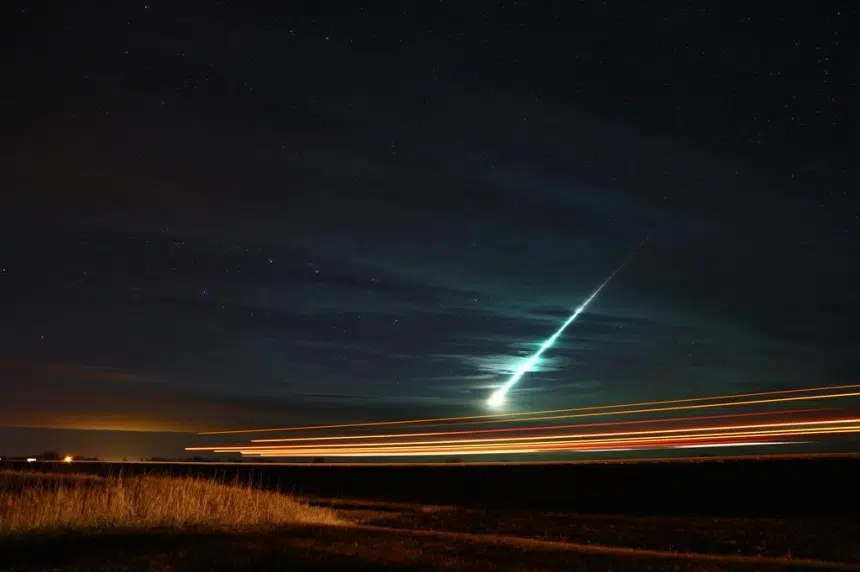A spectacular photo making its way through social media was close to not being captured at all.
“I had planned to go out last night, Auras (Aurora Borealis) were supposed to be good so I planned to be out. It’s funny because I had to work early this morning (Monday) and I was on the fence of going out or going to bed so I just told myself I’d be up for another hour or so,” said photographer Bill Allen from Ralph, Sask.
“It was literally the first frame … I got it out of the truck, set up the cameras, pointed it at the Big Dipper and bang it was two seconds into a 15-second exposure, down it came.”
Allen said the first person he sent the photo to was his idol and Saskatchewan’s tornado hunter Greg Johnson.
Over social media, Johnson said this meteor was part of the Taurid meteor shower that’s expected to peak in this week.
Allen recalls watching a bright flash of light cross the sky followed by a crackle with an orange glow, probably the result of the so-called meteor crashing into the earth. But Allen has no idea where the meteor may have landed.
Allen’s picture has been viewed and shared thousands of times with people from as far as North Dakota saying they saw the same flash of light. Other recall hearing a loud boom followed by the ground shaking for a moment.
People in Kelvington, Quill Lake, Regina, Stenan, Clearwater, and in Manitoba also claim to have seen it.
“It was like lightning flashes in the sky and then a red burning ball of fire. Friends at home in Kelvington, Sask. say it shook houses and made a loud bang,” said Tracey Sauer on Facebook.
FIREBALL FROM TAURID METEOR SHOWER
Stan Shadick, astronomy professor at the University of Saskatchewan, said the fireball is the remnants of a very old comet.
Shards of the comet produce the Taurid meteor shower, an annual cosmic event, which reaches its peak this week.
Shadick said the Taurids are not normally a good one to observe.
“You could stay up all night and not see one. What’s special about this one when you do see a meteor, there’s higher chance of it being a truly spectacular fireball.”
Shadick said the accounts from people hearing a loud bang suggests the meteor may have landed somewhere, however one surviving entering Earth’s atmosphere is rare.
“As it comes through our atmosphere of course it gets very, very hot and burns up. There might have been a bit of an explosion as the object was breaking up so that might have created a loud wave. Perhaps that’s what people herd or felt,” Shadick said.











